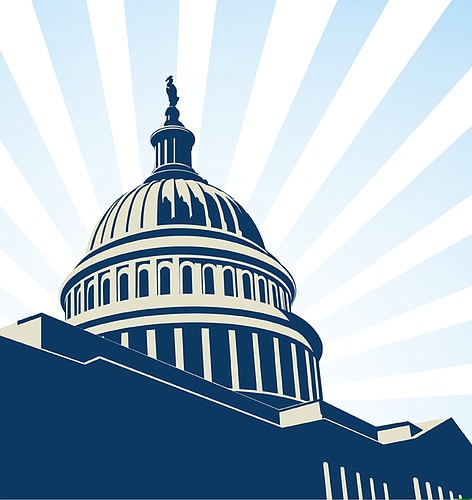Savings questioned in new PIP law
It's hard to know what to make of all the cautions about savings in Florida's new no-fault insurance law.
The insurance industry scored a major victory this spring when the Florida Legislature reformed the law, known as PIP for personal injury protection, to rid it of fraud and sharply escalating costs. While car crashes and injuries declined from 2007-2010, PIP payouts increased 66%. In 2010, insurers paid out $1.04 for each $1 in premiums they took in even though rates have been rising 50%-70%.
So legislators changed the law to try to erase the fraudulent areas and keep costs in line for both insurance companies and consumers buying auto insurance.
But now the Office of Insurance Regulation has released a draft study of the law by Pinnacle Actuarial Resources Inc., a consultant hired by the state. Regulators are downplaying the study, which found that no-fault insurance premiums could fall by 12%-20%.
“The final conclusions may, and probably will, change prior to the report being finalized,” spokesman Jack McDermott wrote when the study was released. He laid out a list of caveats why the savings may not be that high.
The new legislation continues to require Florida drivers to carry $10,000 of no-fault insurance for quick disbursement after an accident, but it lowers attorney fees and tries to knock out PIP clinics where the fraud has been greatest. Additionally, the law bans PIP payments to massage companies and limits payments for non-emergency treatment — an area dominated by chiropractors — to $2,500.
The law mandates a 10% reduction in premiums in 2013 and then a 25% cut in 2014. But McDermott noted that no-fault portion is only about 20% of a consumers' auto insurance premium, so the effect on the overall premium will be much less. The law also gives insurance companies a way out of the 10% and 25% reductions, if they can persuade the OIR they have a good reason.
The insurance industry, through Property Casualty Insurers Association of America, also is cautious about the size of the savings, pointing out the law does not start until Jan. 1 and there are several court cases involving it already. Court rulings could mean a different interpretation than what the Legislature wanted.
The reality is the actual savings will not be known until the law has been in place for awhile, but consumers are being prepared for savings not being as impressive as they sounded during the legislative debate.
Florida economy plods forward
More economic signs are pointing to a continued recovery in Florida, but it remains a lethargic recovery, weighed down by the weak U.S. economy, deepening troubles in Europe and a slowing economy in China.
But the news is still good enough for state economists to project that next year's state budget could see $1.2 billion more in revenues. That is a stark turnaround from five straight years of declining revenue and budget cuts.
The growth in revenues comes largely from the state sales tax and illustrates increased strength in tourism, construction and auto sales. But economists are also projecting an increase in real estate-related taxes as the housing market firms up.
Also, the state ended the fiscal year on June 30 with a $407 million surplus.
Because lawmakers and Gov. Rick Scott put $1 billion in reserves this year, that, combined with the surplus and the extra revenue, could give the state up to $2.6 billion more to work with — although it is doubtful that the Legislature will take from reserves with revenues increasing.
However, the approaching torpedo in the mildly good news is the sharp tax increases along the board and deep spending cuts that are both set to take effect in January if Congress and President Obama do not come up with a solution. No one expects that solution before the November election as both sides' offers have been soundly rejected. The election will be followed by a lame duck Congress, and maybe president, meaning there is a good chance this could all start kicking in.
The uncertainty is strangling business decisions.
Florida pensions have bad ratio
An interesting factoid was released by the U.S. Census Bureau recently that could play a role in the spring legislative session.
Florida's $134 billion pension system is at the bottom of the pack when looking at the ratio of employees paying into the system and pensioners taking benefits out. The state is 35th with 1.6 public workers for each beneficiary, compared with a national average of 1.8, according to the bureau.
The lower the ratio, the harder it is to sustain.
Brodsky wins State Attorney office
Ed Brodsky won a historically rancorous race for State Attorney for the 12th Judicial Circuit, defeating well-funded opponent Peter Lombardo in the Republican primary Tuesday.
Brodsky had 27,814 votes or 53% to Lombardo's 24,994 votes or 47%.
Lombardo, an attorney and former prosecutor, waged an unusually aggressive campaign of negative advertising against Brodsky funded largely by Gary Kompothecras, of 1-800-ASK-GARY fame. Kompothecras had a long-running dispute over Brodksy's decision not to charge a former employee of Kompothecras.
Brodsky, who is the assistant state attorney now, had the support of almost the entire law enforcement community in the three-county area of Sarasota, Manatee and DeSoto.
Brodsky will now face Democrat John Torraco in the general election.






